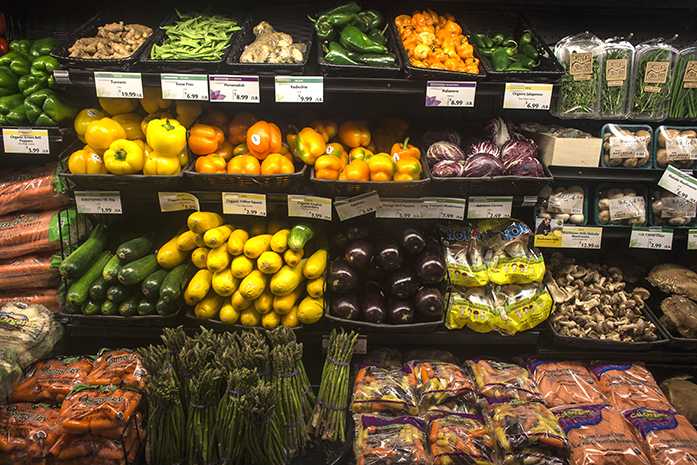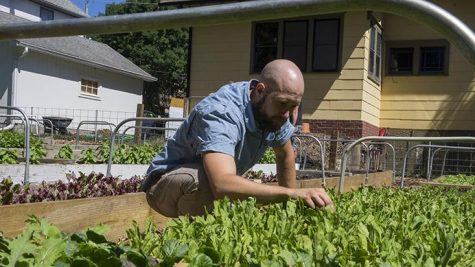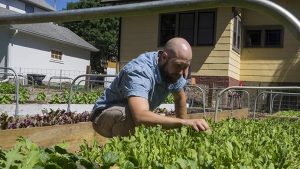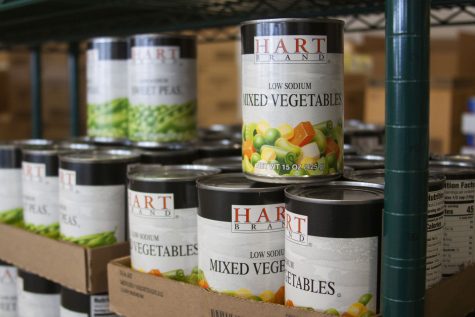Nadler: Plot twist: Organic food is cheap
Organic food is worth the price. Not just because it’s healthy, but because of the hard work that goes into producing organic food.
Organic vegetables shine in the light of an open refrigerator cooler in New Pioneer Co-op on Tuesday, July 26, 2016.
September 13, 2018
While living in Seattle this summer, I took a weekend trip to Whidbey Island to visit a friend and Hawkeye alum. Future organic farmer Corbin Scholz had attended an organic-farm school in a secluded island for the previous six months. It was not until I got to the farm that I realized how much work goes into growing and harvesting just one organic vegetable.
Scholz took me on an elaborate tour of the farm. From quinoa to pigs to tomatoes, the 10 acres of land were used to their full potential.
I was fascinated by the many different techniques the farm had to make things certified organic. The strategies to avoid using pesticides was so clever — for example, insectary beds of zinnias, sunflowers, borages, and more plants lined certain crop areas to attract pollinators that would help pollinate the crops. No chemical pesticides. Just a great understanding of the environment and how to use certain plants to protect others.
After learning about the organic farm, I reconsidered always thinking that organic produce was too expensive. Seeing my friend put so much TLC into one plant let alone 10 acres of land had me thinking otherwise. Organic vegetables are a great value for the amount of work they require to grow and harvest.
For crops and livestock to be certified organic they have to meet 95 percent or more of the certified organic standards. For example, crops have to be free of pesticides and cannot have any genetic engineering or industrial solvents. These are only some of the standards the U.S. Agriculture Department has for organic certification.
Now, this may sound easy for organic farmers to avoid pesticides and genetic engineering, but this requires the crops and livestock to receive much more personalized care. At the organic farm I visited, Scholz hand-picked the vegetables for the next day’s Farmers’ Market. She got up in the mornings to milk the organic cows and feed the organic pigs. She brushed the dirt off every vegetable she harvested. All to produce some organic food to sell to the community the next day — at an overly deserved price.
Seeing firsthand the hard work that goes into an organic farm has humbled me. Just the amount of work that goes into growing one head of lettuce is insane. I am grateful for the cheap price of organic vegetables and the experience I had on Whidbey Island to bring the amount of work to light for me.
As we enjoy the last few weeks of the Iowa City Farmers’ Market, I hope to remind you all of the hard work, strategic chemical-free techniques, and love that goes into organic products. Organic farmers are giving the community nutritious and natural sources of food with regenerative goals at a very cheap price.
















